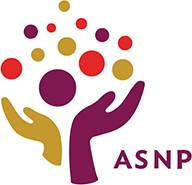Special Needs Trusts

Special Needs Trust are compliant with federal and state law which are designed to protect the assets of disabled persons. They are frequently used to receive proceeds on behalf of a disabled person in order to allow the person to secure their qualification for Medicaid benefits now and in the future.
Self Settled Trust
We administer self settled trusts which are governed by Federal Statute [42 U.S.C. Sec. 1396 p(d)(4)(A)]. These trusts are specifically authorized for holding assets from court ordered settlements for disabled individuals under the age of 65. Such settlement funds would otherwise be deemed income to the disabled individual ultimately reducing or eliminating government benefits.
A self settled trust is sometimes called a “payback trust” because it’s required to include a return of funds. This provision requires reimbursement to the State for medical benefits provided during the individual’s lifetime. This provision effects how the funds are dispersed upon the death of the beneficiary.
Third Party Trust
Third party trusts are funded by individuals other than the disabled individual. Because these assets were never owned by the disabled person the “payback provision” required under a self settled trust is not applicable. Trust assets can be left to family members or other designated payees upon the death of the trust beneficiary.
Trust Funding
The initial funding of the self-settled trust is typically completed by a defendant insurance carrier or self-insured entity. In the following years, an annuity from a structured settlement issuer may pay into the trust for the benefit of the disabled individual. Although this is typical in the personal injury marketplace, there are many variations of SNT’s to tailor a solution for the individual needs of the beneficiary.
For Trusts valued greater than $250,000, we work with registered investment advisers to receive strength of professional money management.
Trustee Options
A common feature of an SNT is that they may be administered either by family members or a professional trustee. Making the right choice of trustee is essential for proper administration to ensure security of government benefits over time. A professional trustee offers many advantages because we are able to skillfully handle all of the areas that pose a problem for the family members. Being a trustee demands a great deal of time and attention. It requires detailed accounting and preparation of income tax returns as well as fiduciary knowledge, skill and diligence. Public assistance rules are complex and constantly changing. The immense challenge and time commitment of remaining well-versed in the intricacies of these laws is nearly impossible for family members or anyone not working continuously in this unique practice area. A professional trustee shoulders this burden for the disabled individual and their families.
In addition to a well drafted trust document and appropriate asset management we provide services including annual accounting to Social Security, Medicaid, the Courts and preparation of tax returns. We also offer a Fidelity Bond issued from nationally known insurance companies to bond each individual court approved case.




